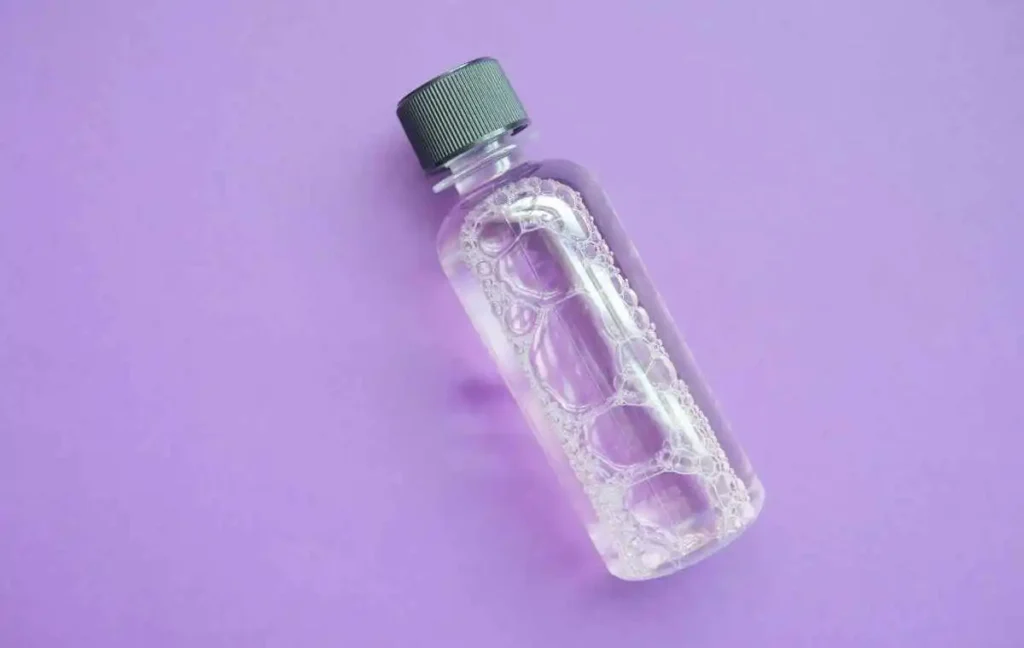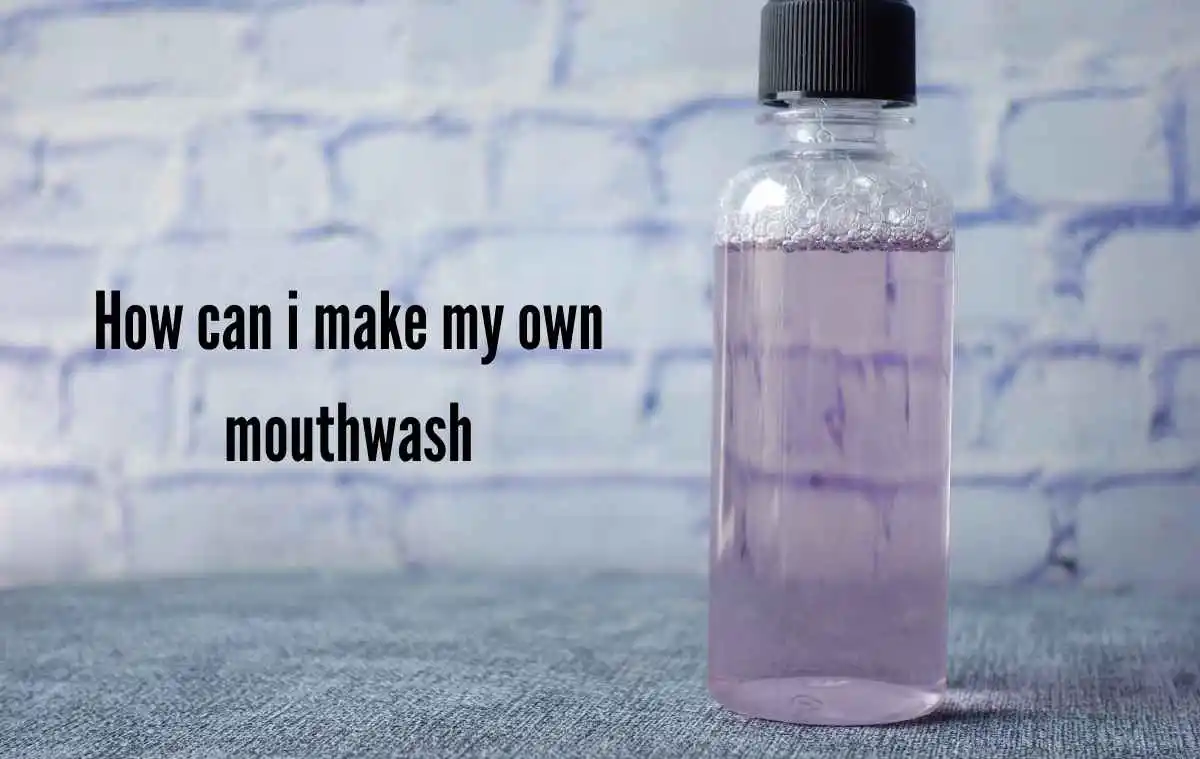Maintaining good oral hygiene is essential, but store-bought mouthwashes can be filled with chemicals and artificial ingredients. If you’ve ever wondered, “Can I make my own mouthwash?”, the answer is a yes!
Creating your own mouthwash at home is not only cost-effective but also allows you to control the ingredients, ensuring a natural and safe solution for your oral health. This guide will walk you through the benefits, ingredients, and steps for making a DIY mouthwash that’s perfect for fresh breath and healthier gums.
Why make my own mouthwash?
Commercial mouthwashes are often packed with alcohol, artificial flavors, and chemicals that can cause irritation or dryness in the mouth. By make my own mouthwash, you can avoid these harsh ingredients while creating a product tailored to your needs.
Whether you’re looking for a refreshing rinse or a natural way to combat bad breath, a homemade solution can be more effective and gentler on your oral tissues.
Benefits of Homemade Mouthwash
Homemade mouthwash offers a range of benefits that make it an attractive alternative to commercial products. One of the primary advantages is the use of natural ingredients, allowing you to avoid harsh chemicals, artificial flavors, and alcohol that can irritate sensitive gums or cause dryness.
Unlike store-bought mouthwashes, which often contain alcohol and synthetic additives, a DIY mouthwash can be gentle yet effective in reducing bacteria, preventing bad breath, and promoting overall oral health. Another significant benefit is customization; you can tailor your mouthwash to target specific concerns like gingivitis, plaque buildup, or dry mouth by adjusting ingredients such as essential oils or baking soda.
Additionally, making your own mouthwash is cost-effective since it uses simple, easily accessible ingredients like salt, baking soda, and essential oils, saving you money in the long run. Furthermore, using a homemade mouthwash can reduce your exposure to allergens or sensitivities triggered by commercial products.
It’s also an eco-friendly option, as you can reuse containers and minimize packaging waste. Overall, homemade mouthwash not only promotes a healthier smile but also aligns with a more natural, sustainable lifestyle.
Key Ingredients for a Homemade Mouthwash
Before diving into the recipes, it’s essential to understand the ingredients used in DIY mouthwash. These natural components not only provide a refreshing taste but also contribute to improved oral hygiene.
Baking Soda .Helps neutralize acids, reduce bacteria, and whiten teeth. It’s mildly abrasive, which aids in removing surface stains.
Coconut Oil. Known for its antibacterial properties, it can help reduce plaque buildup and soothe gum inflammation. Ideal for oil pulling to promote oral health.
Essential Oils. These oils have antimicrobial and anti-inflammatory effects. Peppermint freshens breath, while tea tree and clove oil help combat bacteria and gum issues.
Hydrogen Peroxide (3% solution). Acts as a mild antiseptic that can reduce bacteria and whiten teeth. It should be diluted with water to prevent irritation.
Salt. Naturally helps reduce bacteria, soothe gums, and heal mouth sores. A saltwater rinse can relieve inflammation and prevent infections.
Aloe Vera Juice. Provides anti-inflammatory benefits, helps soothe sore gums, and can promote healing of mouth ulcers or irritation.
Xylitol. A natural sweetener that fights cavity-causing bacteria and helps balance the pH level in the mouth, reducing the risk of tooth decay.
Step-by-step recipes to make mouthwash

Below are a few simple recipes to create your own natural mouthwash. These can be customized based on your preferences and oral health needs.
Simple Baking Soda Mouthwash
To make a basic baking soda mouthwash, mix 1 cup of warm water with 1 teaspoon of baking soda until fully dissolved. For a refreshing boost, add 3 drops of peppermint essential oil. Put 1-2 tablespoons of the solution in your mouth for about 30 seconds, then spit it out. Store any remaining mouthwash in a sealed container, and use it within a week for best freshness.
Antibacterial Coconut Oil Mouthwash
For a natural antibacterial rinse, melt 1 tablespoon of coconut oil until it’s liquefied (avoid overheating). Mix it with 1 cup of warm water and add 5 drops of tea tree essential oil for its germ-fighting properties. Swish 1 tablespoon of the mixture in your mouth for 1-2 minutes, then spit it out. This mouthwash is great for reducing plaque and soothing gums. Use daily for best results.
Whitening Hydrogen Peroxide Mouthwash
To make a whitening mouthwash, combine 1/2 cup of 3% hydrogen peroxide with 1/2 cup of water. Add 4 drops of peppermint essential oil for flavor. Be careful not to swallow it. Use this once or twice a week to help brighten your smile.
Soothing Salt and Aloe Vera Mouthwash
To soothe sore gums, mix 1 cup of warm water with 1 teaspoon of salt and 1/4 cup of aloe vera juice. Stir until the salt fully dissolves, and pour the solution into a bottle. Swish 2 tablespoons in your mouth for 30 seconds, especially after meals, to reduce inflammation and promote healing.
Fresh Xylitol and Peppermint Mouthwash
For a gentle, sweet-tasting mouthwash, dissolve 1 teaspoon of xylitol in 1 cup of warm water. Add 5 drops peppermint essential oil for a refreshing, antibacterial effect. Use 1-2 tablespoons to rinse daily, which helps to prevent cavities and freshen breath.
Tips for Storing and Using Homemade Mouthwash
Use a glass jar or a BPA-free plastic bottle to store your mouthwash. Keep it in cool, dark place to maintain its effectiveness. Most homemade mouthwashes last up to one week. If it contains coconut oil, store it in a cooler environment to prevent it from solidifying.
Usage: Use 1-2 tablespoons of mouthwash, swish for 30 seconds to 1 minute, and then spit out.
Common Mistakes to Avoid
- Using Undiluted Essential Oils. Essential oils are potent and can irritate gums if not properly diluted.
- Overusing Hydrogen Peroxide. Frequent use can damage enamel and cause gum sensitivity; limit to once a week.
- Not Measuring Ingredients Accurately. Incorrect proportions can reduce effectiveness or cause irritation.
- Skipping Regular Use. Inconsistent use of homemade mouthwash may not yield desired results for oral health.
- Storing Incorrectly. Failing to store mouthwash in a cool, dark place can cause ingredients to degrade quickly.
- Swallowing Mouthwash. Homemade mouthwash, especially those with hydrogen peroxide, should never be swallowed.
- Not Shaking Before Use. Ingredients can settle over time; always shake well before using to ensure even distribution.
Comparison of Ingredients in Homemade Mouthwash
| Ingredient | Benefits | Cautions |
| Baking Soda | Neutralizes acids, whitens teeth | Overuse may erode enamel |
| Coconut Oil | Antibacterial, soothes gums | Solidifies at cooler temperatures |
| Essential Oils | Freshens breath, reduces bacteria | Must be diluted before use |
| Hydrogen Peroxide | Whitens teeth, reduces bacteria | Use diluted, avoid swallowing |
| Salt | Soothes gums, reduces inflammation | Can be abrasive if used too often |
Conclusion
Learning how to make my own mouthwash not only saves money but also provides a healthier, chemical-free alternative to store-bought options. By using natural ingredients like baking soda, coconut oil, and essential oils, you can create a personalized mouthwash that suits your oral health needs.
Whether you’re looking to freshen your breath, whiten teeth, or soothe gums, a homemade solution is both effective and safe. Start experimenting with these recipes to find the perfect formula that fits your lifestyle, and enjoy the benefits of a natural, refreshing mouth rinse. Your mouth will thank you!
FAQs
Is Homemade Mouthwash Effective?
Yes, homemade mouthwash can be very effective when made with ingredients like salt, baking soda, or essential oils, which help reduce bacteria and freshen breath. It’s a natural alternative to store-bought options. With regular use, it can improve oral hygiene and gum health.
Can I Use Essential Oils in Mouthwash?
Yes, you can use essential oils like peppermint, tea tree, or clove in mouthwash for freshness and antibacterial benefits. However, always dilute them properly in water or a carrier oil to avoid irritation. Just a few drops are enough for effectiveness.
Is Homemade Mouthwash Safe for Daily Use?
Yes, homemade mouthwash is generally safe for daily use if it’s made with gentle ingredients like baking soda, salt, or diluted essential oils. However, limit hydrogen peroxide-based rinses to once a week to prevent gum irritation. Always avoid swallowing.

